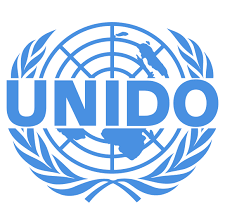
United Nations Industrial Development Organization
Experience: 3 to 5 Years
Skill Required: Monitoring and Evaluation
Apply By: 17-05-2022
The United Nations Industrial Development Organization (UNIDO) is the specialized agency of the United Nations that promotes industrial development for poverty reduction, inclusive globalization and environmental sustainability. The mission of UNIDO, as described in the Lima Declaration adopted at the fifteenth session of the UNIDO General Conference in 2013 as well as the Abu Dhabi Declaration adopted at the eighteenth session of UNIDO General Conference in 2019, is to promote and accelerate inclusive and sustainable industrial development (ISID) in Member States. The relevance of ISID as an integrated approach to all three pillars of sustainable development is recognized by the 2030 Agenda for Sustainable Development and the related Sustainable Development Goals (SDGs), which will frame United Nations and country efforts towards sustainable development. UNIDO’s mandate is fully recognized in SDG-9, which calls to “Build resilient infrastructure, promote inclusive and sustainable industrialization and foster innovation”. The relevance of ISID, however, applies in greater or lesser extent to all SDGs. Accordingly, the Organization’s programmatic focus is structured in four strategic priorities: Creating shared prosperity; Advancing economic competitiveness; Safeguarding the environment; and Strengthening knowledge and institutions.
Each of these programmatic fields of activity contains a number of individual programmes, which are implemented in a holistic manner to achieve effective outcomes and impacts through UNIDO’s four enabling functions: (i) technical cooperation; (ii) analytical and research functions and policy advisory services; (iii) normative functions and standards and quality-related activities; and (iv) convening and partnerships for knowledge transfer, networking and industrial cooperation. Such core functions are carried out in Departments/Offices in its Headquarters, Regional Offices and Hubs and Country Offices.
The Directorate of Environment and Energy (EAE), headed by a Managing Director, aims to integrate and scale-up the energy and environment activities focusing on supporting governments and industries to provide sustainable and resilient soft and hard infrastructure for industrial development, supporting industries to contribute to climate neutral circular economy, and supporting governments and industries in fulfilling national commitments under multinational climate and environmental agreements. The Directorate consists of the Department of Environment and the Department of Energy.
The responsibility of the Department of Energy (EAE/ENE) is to assist Member States in the transition to a sustainable energy future under the overarching mandate of ISID, through the application of renewable energy for productive uses, adoption of the efficient use of energy by industry and the introduction of low-carbon technologies and processes. In transitioning to a sustainable energy future, the challenges of addressing energy poverty and climate change become an integral part of the Department activities.
This position is located under the Energy Systems and Infrastructure Division (EAE/ENE/ESI), which focuses on promoting sustainable energy solutions and infrastructure for industrial development. The promotion of industrial decarbonization through crosscutting solutions, such as energy management systems and standards, energy systems optimization, and deployment of renewable energy technologies is one of the core functions of the Division. In addition, the Division supports Member States with the transition to sustainable energy systems for ISID. By bringing together supply and demand side perspectives, the focus of the Division is on system level changes and transformative solutions driven by the convergence of key technologies such as distributed generation, digitization and storage technologies as well as climate policies. The Division focuses on disruptive solutions, being they technological or business models. It is also responsible for coordinating policy engagement and dialogues, at national, regional and global levels, and through pursuing meaningful global partnerships in the field of sustainable energy and climate change. The Division positions UNIDO strategically in the global energy and climate change forums and coordinates the global network of regional centers and partnerships.
Main Functions:
The main objective of the position is to ensure timely coordination of all programmatic and monitoring and evaluation (M&E) tasks related to the Filed Office and projects’ reports. The M&E expert will work under direct supervision of the UNIDO Country Representative. His/her duties shall be performed in accordance with applicable rules and regulations of UNIDO and this Job Description.
Minimum Requirements:
Education:
Languages
Field of Expertise: